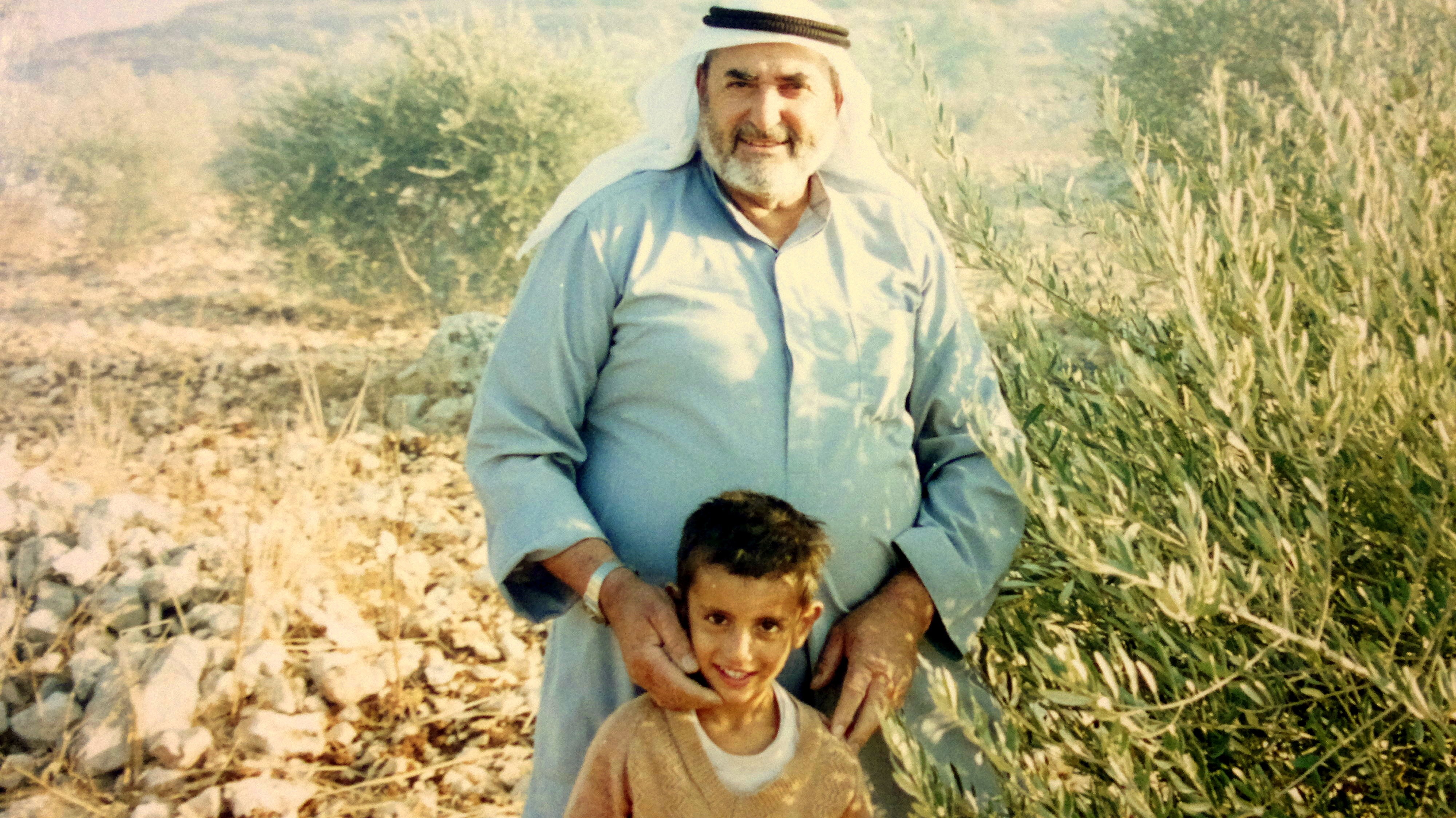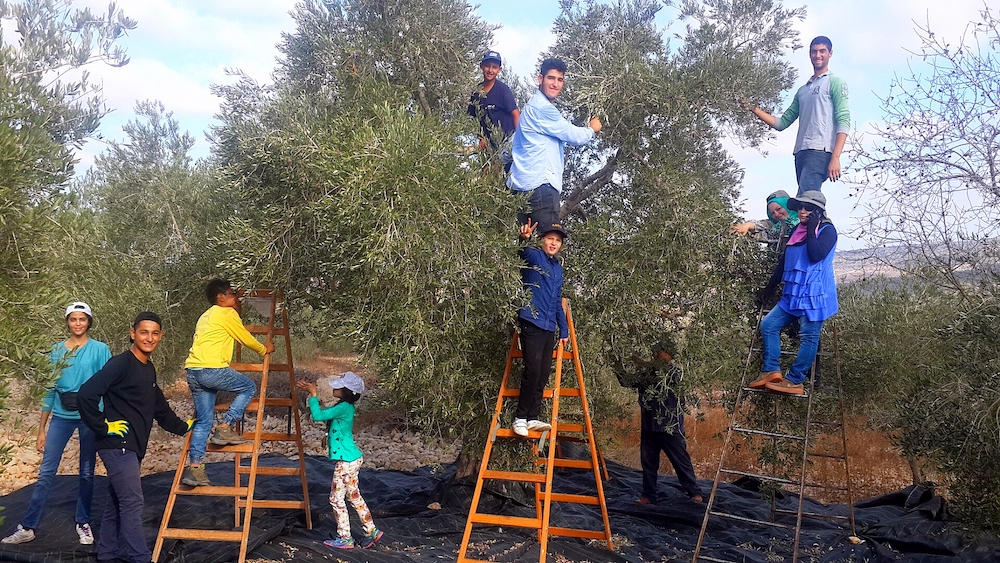If Trump's plan is not apartheid, then what is?
7 February 2020 10:58 UTC | Last update: 2 hours 12 min ago
The US 'deal of the century' will deprive me of my ancestors' farm, which would be either annexed to Israel or become an isolated island among annexed settlements

Layali Taamallah, Fareed's daughter, harvested with joy during the olive season last year (Courtesy of Fareed Taamallah)
As a Palestinian farmer who owns land in Area C, surrounded by illegal Israeli settlements, I stand to lose a lot from US President Donald Trump’s “deal of the century”.
I live and work in Ramallah, while my farm is located in my hometown of Qira in the Salfit region, between Ramallah and Nablus. Under the Trump plan, it would become stuck in a kind of no-man’s land between artificially created bantustans.
History of cultivation
Trump’s “peace” plan for the Israeli-Palestinian conflict, which is entirely biased towards Israel and has been rejected by Palestinian leaders, gives Israel a green light to annex illegal West Bank settlements. It divides the Palestinian territories into a series of bantustans linked by tunnels and bridges, with no viable strategy for a contiguous Palestinian state.

From the maps provided in Trump’s plan, it is not clear whether my hometown would be annexed to Israel, or whether it would be an isolated island among annexed Israeli settlements. In both scenarios, it would be difficult for me to cultivate the land I inherited from my father, who, in turn, inherited it from his father.
Many of us will be deprived of the opportunity to cultivate our own land, all because Trump and Netanyahu want to win more votes
Since childhood, I used to cultivate the land with my mother, as we lived off of it exclusively.
Many trees that today stand on the farm were planted by my mum and dad, while others I planted with my own children, as we spent weekends working on the land and enjoying its bounties.
My farm is planted with almond, fig and olive trees; some are up to 700 years old. From these, we consume fresh and dried figs, almonds and olive oil. Last season, we produced three tons of olive oil from our farm.
Every year, my friends - from Palestine and all over the world, from Britain to the US to South Africa - come to lend a hand during the olive harvest.
Most of the land on which Israel’s illegal settlements are built is privately owned by Palestinians, often passed down through generations of farmers. Under Trump’s plan, many of us will be deprived of the opportunity to cultivate our own land, all because Trump and Israeli Prime Minister Benjamin Netanyahu want to win more votes.
Harvest in jeopardy
Just as no one asked for the opinion of the Palestinian leadership when this deal was drafted, no one asked for my input, as a farmer who will be directly affected.
Palestinians have no option but to resist this proposal. This will quite likely lead to a long period of instability, further threatening my farm and my family’s livelihood. With Netanyahu pushing to begin further land annexation under the terms of the Trump plan very soon, I may not be able to harvest the fruits of my trees during the upcoming season.

Since the start of the Israeli occupation, land has been at the heart of the conflict. The Israeli government wants to take more and more Palestinian land, displacing the original inhabitants and preventing them from cultivating their farms and groves. Two different legal systems are applied by Israel in the same geographical area, favouring Israeli settlers over the Palestinians who live just a few hundred metres away. If this is not apartheid, what is it?
A true peace agreement is something that both sides could agree upon to bring justice and peace. The Trump plan is nothing of the sort. It gives Israel free reign to continue its campaign of annexation and dispossession.
A bleak future
The Trump plan is inherently unjust and will never ensure security for any side; rather, it will fuel protracted instability throughout the Middle East.
If this plan is implemented, I am afraid that I will no longer be able to enter my farm and cultivate as I used to, and that I will lose the land and trees I inherited from my father and grandfather. It could end up annexed to an Israeli settlement, in preparation for the transfer of its ownership to Israeli settlers.
This would lead to an indescribable emotional loss, alongside the financial loss of this productive land. Such a situation will not achieve peace, but will only inflame hatred and violence, giving farmers no choice but to resist.
The views expressed in this article belong to the author and do not necessarily reflect the editorial policy of Middle East Eye.


0 Comments:
Post a Comment
Subscribe to Post Comments [Atom]
<< Home